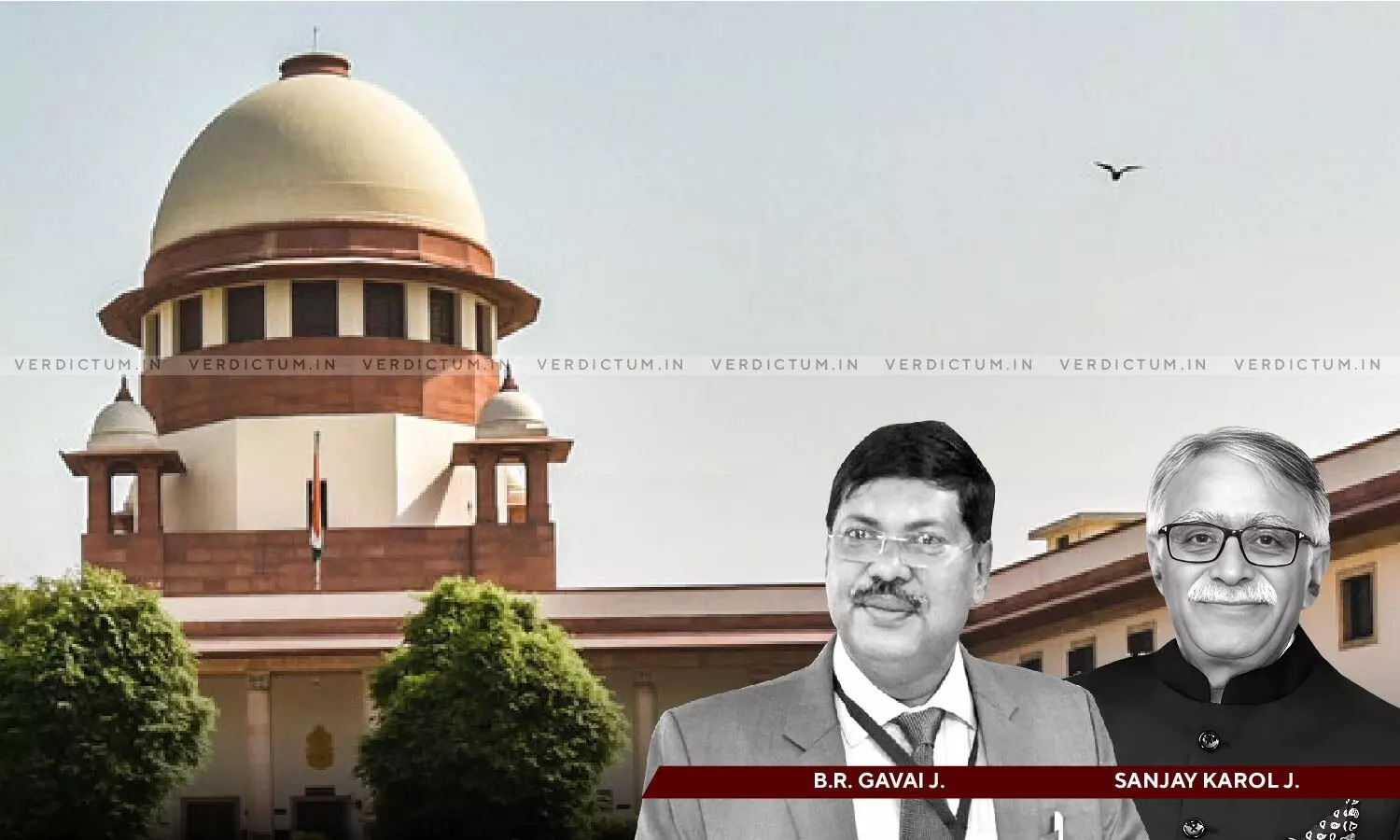
Supreme Court Reduces 'Disproportionate' Punishment Of Engineering Student Found Cheating In Exams
 |
|The Supreme Court has upheld the Delhi High Court’s judgment and order finding an engineering student of the Delhi Technical University, guilty of malpractices wherein he was found using unfair means in the end-term second-semester examination. However, the Court was of the opinion that the sentence imposed was disproportionate, thereby reducing it from Category IV to Category II.
The effect of the punishment of Category IV was that all the examinations of the second semester taken by the petitioner-student were cancelled, and his consequent admission to the third semester also stood canceled. The student was directed to register for the second semester along with the B.Tech students admitted in the year 2022.
“Though, in the facts and circumstances of the case, we do not find that the finding of the High Court that the petitioner was guilty of malpractice needs to be interfered, we find that the punishment awarded is disproportionate to the act found to be proved against the petitioner”, a bench of Justice B.R. Gavai and Justice Sanjay Karol observed in the matter.
Senior Advocate V Mohana appeared for the petitioner-student, and Advocate Avnish Ahlawat respondent.
Earlier, a division bench of the Delhi High Court comprising Chief Justice Satish Chandra Sharma and Justice Subramonium Prasad while dismissing the appeal filed by the student, upheld the decision by the single-judge bench, and observed, "Persons using unfair means to steal march over students who work hard to prove their worth has to be dealt with a heavy hand. Students, who resort to unfair means and get away with it, cannot build this nation".
It is pertinent to note that the division bench, in its December 13, 2022 judgment had also observed, “…This Court finds that the University has been lenient in imposing “Category IV” punishment rather than rusticating the cheaters”.
For background, in the instant case, during the end-term examination, mobile phone was found in possession of one student.
The said mobile phone contained Whatsapp group called "Ans.", in which the answers to the questions and the question papers were being shared amongst 22 students. The Appellant is a Member of the said group.
The Unfair Means Scrutiny Committee found that the Appellant was in knowledge of the fact that he is a part of the Whatsapp group before the exam, in which the answers and the questions were shared.
Thereafter "Category IV" punishment was imposed on the Appellant by the competent authority on the recommendations of the Unfair Means Scrutiny Committee.
The Single Judge after going through the material on record held that the University has undertaken a thorough probe and has examined all the material placed before it and has come to the conclusion that the Appellant was guilty of using unfair means.
The Single Judge was of the opinion that the University is the best judge and the decision taken by the University does not warrant any interference.
Cause Title: Yogesh Parihar v. Delhi Technological University & Ors.
Click here to read/download the Order